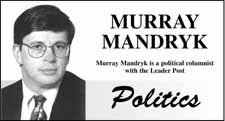The sentiment that the Saskatchewan Party government is no different than the NDP when it comes to rural health care delivery is so far confined to specific areas of frustration.
But one such area where this sentiment is growing is the eastern community of Wawota where residents clearly feel the government and the Sun Country Health Region has singled out their community for bed closures.
The community's integrated health-care centre known as the Deer View Lodge had 35 beds until this May - 30 long-term care beds with five multi-purpose beds largely used for respite and palliative care. However, five beds were closed - much to the frustration of local residents who note neither long-term nor short-term beds in Wawota were ever empty.
Officials with Sun Country say there will still be three multi-purpose beds among the 30 remaining beds left and note that the bed closures were all in a wing where there were infections related the Norwalk virus.However, district officials admit the closures were directly related to this year's provincial budget that directed all Saskatchewan's health regions to find efficiencies. The Wawota bed closures will save $110,000 for Sun Country - part of $1.9 million in overall cuts.
Suffice to say, this justification hasn't gone over big with local Wawota residents - especially in the wake of comments made to the Moosomin World-Spectator by Cannington MLA Dan D'Autremont suggesting voters need to choose between hospitals and highways.
Dale Easton, chair of Wawota's Save Our Beds Committee, was particularly vocal about both D'Autremont's remarks and his unwillingness to stand up for his constituents against the health cut policy.
"The man (D'Autremont) is very unintelligent," Easton told the newspaper. "In our opinion, people should not re-elect the man. He refuses to return our phone calls. He won't do anything for us. He doesn't deserve to be our MLA."
After winning by the biggest majority of any 2007 candidate, it's unlikely that D'Autremont feels especially threatened by the frustrations of local Wawota residents. That said, this is not some angry health care union head with a political agenda expressing his frustration. And what should be even more disconcerting to the Sask. Party government is Easton's observation that Wawota has been in contact with groups from other parts of the province like Leader and Southey that are facing similar frustrations.
That the Sask. Party government was supposed to different in the delivery of health care is at the heart of the frustration for many rural residents. In some ways, it has been different.It's strategy to address the surgical wait-times in the big city hospitals and to explore possible private MRIs use is clearly different.
But notwithstanding its willingness to implement essential service legislation that has clearly taken away the health unions' most powerful strike tool, the Sask. Party has still been every bit as eager to keep health providers - especially, nurses - happy with huge wage increases.
And when it comes to finding efficiencies to pay for these big wage hikes, one of the first places the Sask. Party has looked is rural hospitals - similar to what the NDP did in the early 1990s when it addressed runaway debt by closing 52 of them.
In fairness, we're not seeing anything close to dramatic closures wee saw in 1993. That said, the Sask. Party government isn't exactly facing the same billion-dollar-a-year debt. And the government's claim that these are local board decision rings a bit hollow given that the Sask. Party appoints the local hospital boards and has given them no specific directive to preserve local hospital beds.
Given what we've seeing in Wawota and elsewhere, it appears the Sask. Party's approach to rural health care delivery is more similar to NDP's approach that some in government are willing to admit.
Murray Mandryk has been covering provincial politics for over 15 years.




